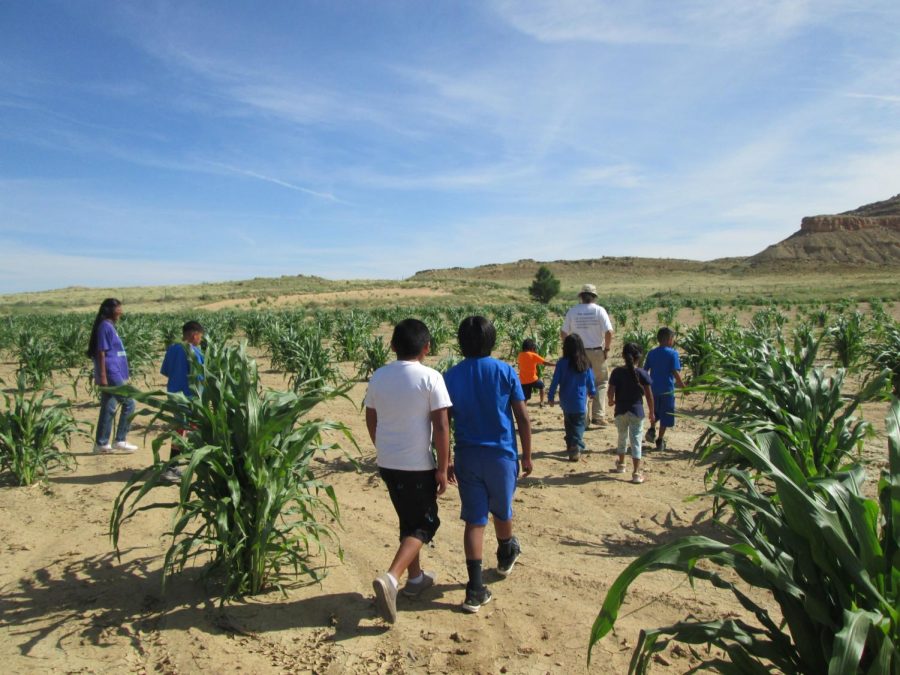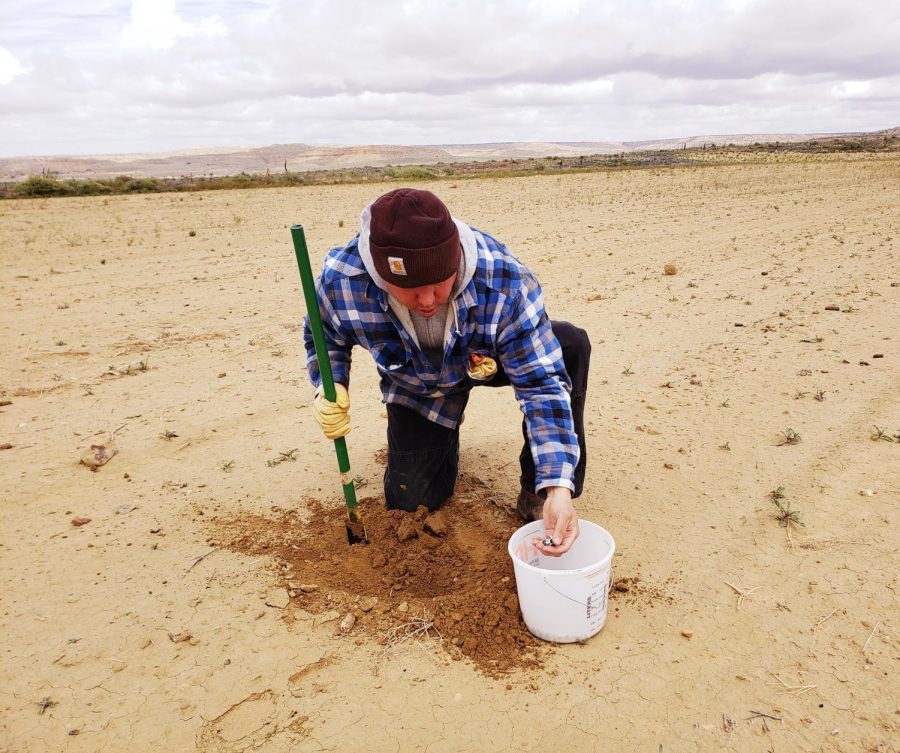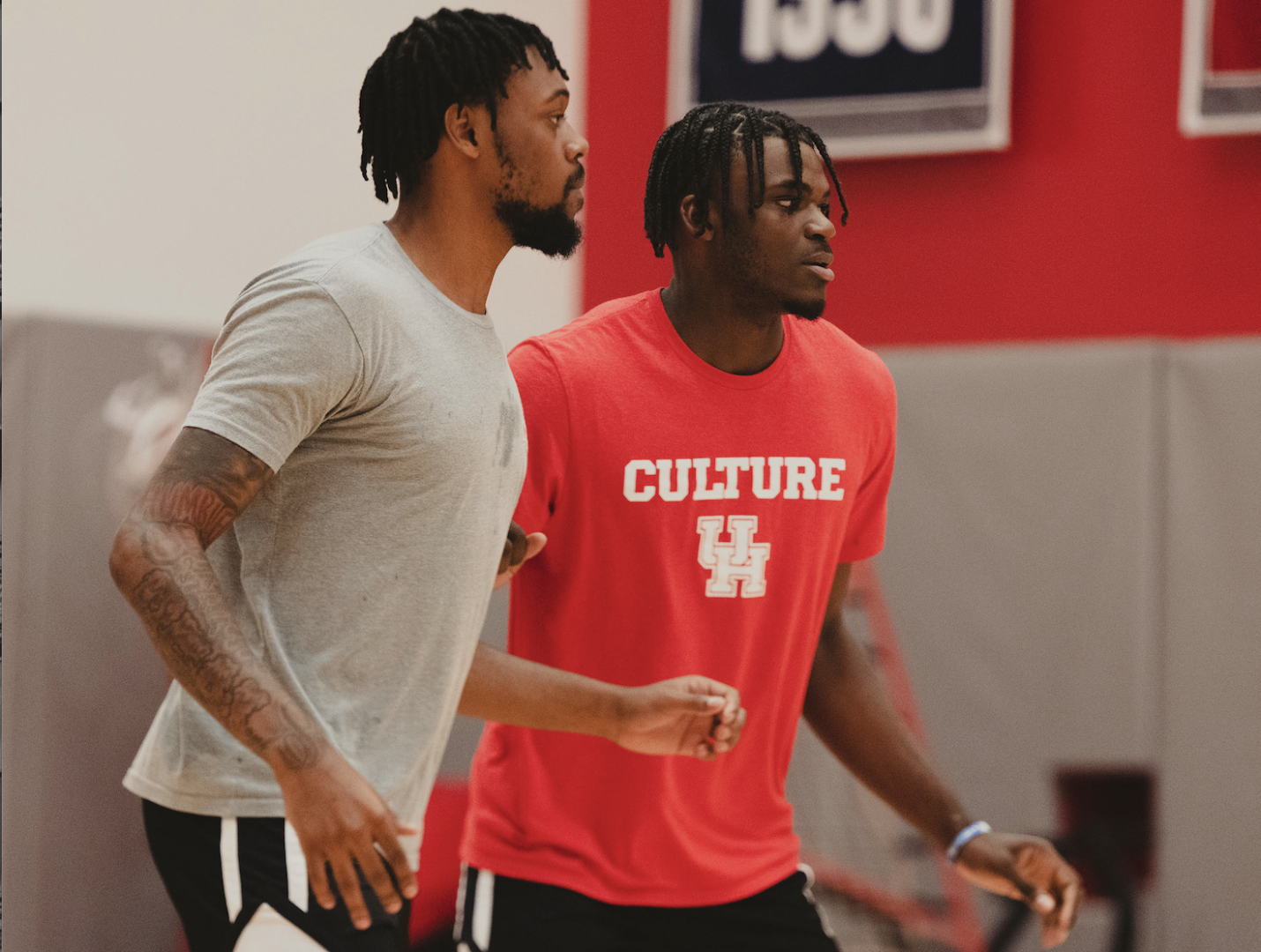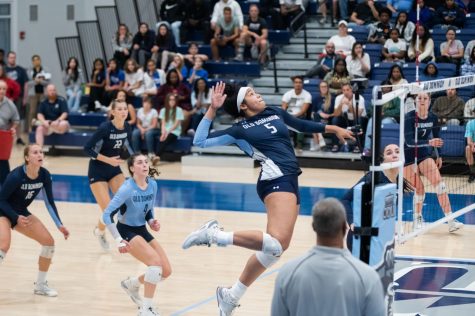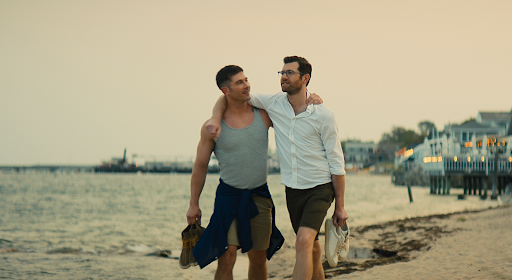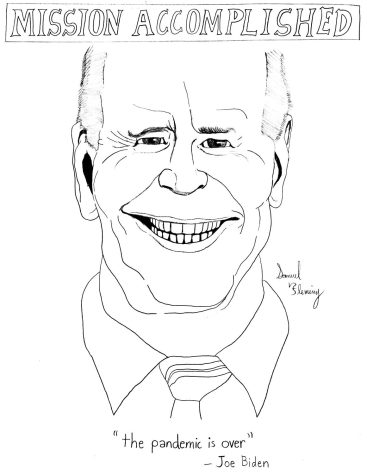Posted on 16 October 2022.
Nov. 8 marks Election Day for the 2022 general election, with early voting in Georgia beginning on Oct. 17. The general election is held every two years for U.S. citizens to vote for their congressional representatives, as well as local and state officials. Any general election run-offs will be held on Dec. 6.
Below is a guide outlining the different positions and candidates running in the 2022 Georgia general election.
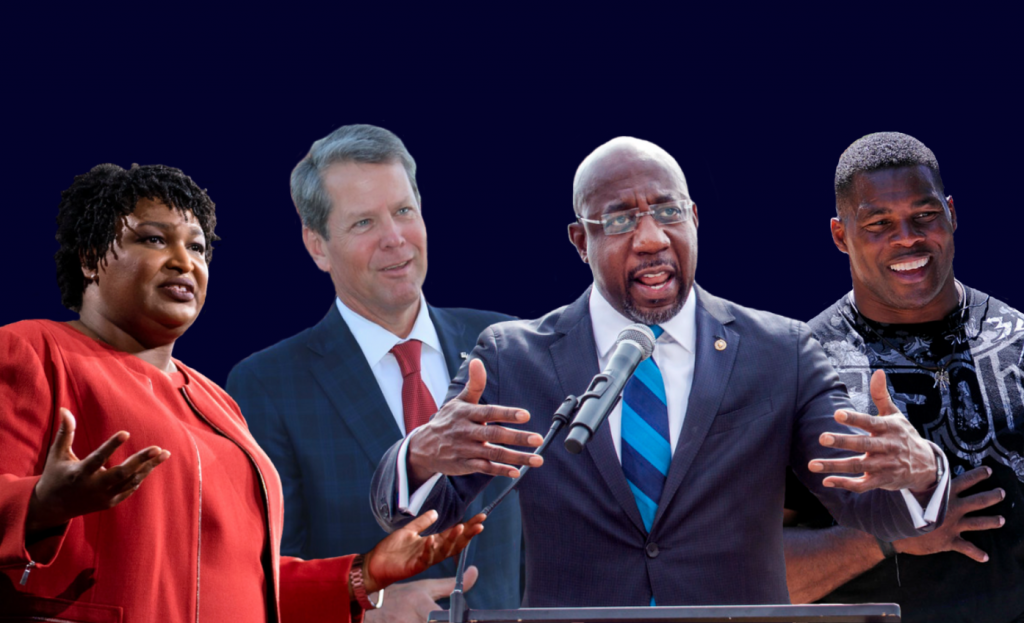
Photos courtesy of Flickr and Creative Commons. (Madi Olivier/News Editor)
U.S. Senate
Senators have the power to author, sponsor, amend, debate and vote on bills that may become national law, as well as hold confirmation hearings for appointees to the Supreme Court and the Presidential Cabinet. A senator serves for six years.
Former Sen. Johnny Isakson (R-Ga.) resigned from office in December 2019 due to health concerns. To fill the seat, Georgia Gov. Brian Kemp appointed former Sen. Kelly Loeffler (R-Ga.) until a special election was held to decide who would complete the remainder of Isakson’s term. Sen. Raphael Warnock (D-Ga.) and Loeffler ran for the position and advanced to a runoff in January 2021, which Warnock won, making him the first Democrat to represent Georgia in the U.S. Senate since 2005, alongside Sen. Jon Ossoff (D-Ga.). Osoff and Warnock’s wins established a slim Democratic majority in the Senate, with 50 Democratic senators and U.S. Vice President Kamala Harris, who acts as a tie-breaking vote. Warnock is now up for reelection. His competition includes U.S. Senate candidates Herschel Walker and Chase Oliver.
Raphael Warnock (D) (incumbent)
Warnock, the incumbent Georgia senator, grew up in Savannah, Georgia. He earned a bachelor’s degree at Morehouse College (Ga.) and a master’s degree in divinity, a master’s degree in philosophy and a Ph.D. from Union Theological Seminary (N.Y.). Warnock has also served as the senior pastor of Ebenezer Baptist Church in Atlanta since 2005.
While in office, Warnock cosponsored the Solar Energy Manufacturing for America Act, which was designed to support and encourage the United States’ transition from fossil fuels to renewable energy by providing tax credits for solar energy production. Warnock also chaired the New Georgia Project, which is centered around increasing civic engagement — specifically among marginalized voters — in Georgia. The project also supports access to information regarding voter registration and advocacy of different issues within the Georgia community.
Warnock’s campaign advocates for Medicaid expansion, protection of the Affordable Care Act, the Equality Act and women’s reproductive rights. He also strives to address the lack of access to clean water and air in many Black and brown communities.
Herschel Walker (R)
Walker was raised in Wrightsville, Georgia. and later played football at the University of Georgia, where he led the team to a national championship in 1980. Most known for his time in the NFL, Walker played for teams such as the New Jersey Generals, Dallas Cowboys and New York Giants. He was inducted into the College Football Hall of Fame in 1999.
Former U.S. President Donald Trump appointed Walker as chairman of the President’s Council on Sports, Fitness and Nutrition. As a candidate, Walker supports lowering taxes, securing the United States and Mexico border, increasing military spending and upholding pro-life policies. He believes that “crime is out of control,” so the police should not be defunded.
Chase Oliver (L)
Originally from Nashville, Tennessee, Oliver works in the import shipping business for a multinational liner service. He aims to “serve the people of Georgia” and not falter to the “political machine based in Washington.” As a candidate, Oliver seeks to implement justice reform and immigration reform, as well as legalize cannabis and defend citizens’ rights to privacy and civil liberties. If elected, Oliver said he would fight to end programs such as warrantless wiretaps, abuse of Foreign Intelligence Surveillance courts and an overarching PATRIOT Act, which he claims “affect the constitutional right to protected privacy and civil liberties.” Olivier previously ran for the U.S. House of Representatives in 2020 but was not elected.
U.S. House District 5
Advocating for the interests and concerns of different districts in their respective states, representatives are elected for two-year terms. Representatives write, sponsor, amend, debate and vote on bills, as well as serve on Congressional committees. They focus on certain areas of policy such as transportation, education or labor. To hold this office, candidates must be a legal resident of their corresponding state for at least seven years prior to their election.
Nikema Williams (D) (incumbent)
Rep. Nikema Williams was born in Columbus, Georgia., but raised in Smiths Station, Alabama. She attended Talladega College (Ala.), a historically Black college, where she was initiated into the Chi Chapter of Alpha Kappa Alpha Sorority and graduated with a bachelor’s degree in biology.
Williams was elected to replace the late former Rep. John Lewis in 2020. Coming out of her first term, she serves on the Financial Services Committee, the Transportation and Infrastructure Committee and the Select Committee on the Modernization of Congress.
Prior to this position, Williams served as a Georgia State Senator from 2017 and 2021. She also worked as vice president of public policy of Planned Parenthood Southeast, the state director of the National Domestic Workers Alliance and the deputy executive director of Care in Action.
While in office, Williams secured the passage of her bipartisan John Lewis Civil Rights Fellowship Act in the House of Representatives, which offers support for scholars studying nonviolent civil rights movements abroad, furthering Lewis’ legacy. Seeking reelection, Williams wants to fight to ensure that every American has access to care at all stages of life through universal family care. She also supports Medicare for All, voting rights and access to education.
Christian Zimm (15Ox, 17C, 20B, 20L) (R)
Christian Zimm (15Ox, 17C, 20B, 20L) is an attorney at a Coldwell Banker Realty in Atlanta, where he is licensed to practice law and real estate in Georgia and Florida. He previously served as the president of the Buckhead Young Republicans and did philanthropic work in Jamaica on a medical mission to provide eye care.
As a candidate, Zimm wants to reduce crime by properly funding police departments and making sure that metro Atlanta has more police officers. He would also like to increase wages to “keep up” with inflation, as well as increase school choices. Zimm additionally supports marijuana legalization, the Second Amendment and the LGBTQ community’s right to adopt.
Governor
Governors are elected officials who serve as the state’s chief executive officer and oversee the functions of the government’s executive branch. Some of their duties include signing bills into law and serving as commander-in-chief of the state’s national guard and militia forces. Governors also have the power to veto measures made by the state’s legislative bodies. All U.S. governors serve four-year terms.
Stacey Abrams (D)
Gubernatorial Candidate Stacey Abrams was raised in Gulfport, Mississippi, and completed her education in interdisciplinary studies at Spelman College (Ga.). She also obtained a master’s degree in public administration from the University of Texas at Austin and a law degree from Yale Law School (Conn.). Abrams previously served in the Georgia House of Representatives from 2007 to 2017 and was the House minority leader from 2011 to 2017. She ran for governor in 2018 but lost to Kemp by about 1.5 percentage points.
Abrams is a tax attorney, entrepreneur, writer and small business owner. She co-founded NOW account, which is a financial services firm that helps Georgia small businesses access capital, grow their operations and create jobs. She is also the founder of the voting rights organization Fair Fight and worked to combat voter suppression after losing the 2018 gubernatorial election.
As a candidate, her campaign includes supporting Georgians from cradle to career by expanding Medicaid, investing in education and providing free technical college through need-based financial aid. She also aims to strengthen aging and disability resource centers and create a “Health Equity Action Team,” which would provide Georgians with the ability to navigate state agencies, private providers and insurance regulations. Abrams advocates for protecting LGBTQ children, supporting reproductive freedom and strengthening gun safety laws to protect both the Second Amendment and Georgians.
Brian Kemp (R) (incumbent)
Kemp is from Athens, Georgia. and graduated with a degree in agriculture from the University of Georgia. He is the founder and owner of Kemp Development and Construction Company, which aims to “revitalize the community by creating new constructions” as well as providing resources to improve the skill set of workers. The company has also worked with small contractors to help support their businesses.
Prior to serving as governor, Kemp served in the Georgia State Senate from 2003 to 2007 as the chairman of the Public Safety and Homeland Security Committee. He was then appointed to serve as secretary of state in 2010 by then-Gov. Sonny Perdue and elected as governor of Georgia in 2018. While in the governor’s mansion, Kemp signed the historic heartbeat bill which placed a six-week ban on abortions in Georgia, expanded Medicaid coverage for new mothers to one year postpartum and implemented the largest teacher pay raise of $5,000 in state history. He also passed the Unmask Georgia Act in March, which prohibited schools from requiring masks in schools.
Kemp’s campaign is centered on creating a “safer, stronger Georgia” through inflation relief with a $1 billion tax rebate, addressing “learning loss” caused by virtual learning during the pandemic with a $25 million for a Learning Loss Opportunity Scholarship Grant, enhancing school safety and enlarging the educator and school counselor workforce.
Shane Hazel (L)
Gubernatorial Candidate Shane Hazel is from Alma, Michigan, and is running for the Libertarian Party. He graduated from the University of Georgia in 2006 and served in the United States Marine Corps from 2001 to 2009. Hazel previously worked in business development and is well known for his podcast, Radical, in which he states that the executive role in government should focus on protecting the natural rights of individuals. He ran as a Republican for U.S. representative in 2018 but lost.
Some of Hazel’s values lie in the decentralization of government power and the nullification of unconstitutional legislation. He supports nullifying all state and federal health mandates as well as taxes, punishments for non-violent crimes and education mandates, which he considers to be “government indoctrination camps.” Hazel, who also wants to adopt bitcoin as legal tender, said he believes that “peaceful people should be left alone” and he “will see it through if it means going through hell to do so.”
Secretary of State
The secretary of state, who serves a four-year term, manages public records, registers professionals and businesses, supervises and monitors elections and tracks annual corporate filings. They manage the voter registration process and prepare ballots.
Bee Nguyen (D)
Georgia State Rep. Bee Nguyen grew up in Augusta, Georgia. and received her master’s degree of public administration in finance and management from Georgia State University. Prior to entering politics, she was the founder and executive director of the nonprofit Athena Warehouse, which aims to educate and empower girls in under-resourced communities. She is also a national policy advisor for New American Leaders, a nonprofit that encourages people of immigrant heritage to run for elected office.
As a current member of the Georgia House of Representatives, Nguyen has served as a representative for District 89 since 2017. She serves on the Budget and Fiscal Affairs Oversight, Education, Governmental Affairs and Human Relations and Aging committees. She was the first Asian American Democrat to be voted into the Georgia General Assembly.
Nguyen wants to “protect our democracy” and ensure Georgia’s elections will always be fair and secure. Some of her goals include investing in training and resources for 159 local election boards, prioritizing voter education and outreach by making better use of technology, promoting language access and translation of all election materials housed within the Elections division and mitigating election disinformation, cybersecurity threats and foreign interference in Georgia elections.
Brad Raffensperger (R) (incumbent)
Hailing from Johns Creek, Georgia., Brad Raffensperger is the current Georgia Secretary of State and a structural engineer. He graduated from Western University in London, Ontario with his bachelor’s degree in civil engineering and continued his education at Georgia State University, where he received his master’s in business administration.
Raffensperger boasts an extensive political career, holding office in the Georgia House of Representatives from 2015 to 2019, where he served on a number of committees, including Energy, Utilities and Telecommunications; Insurance; Intragovernmental Coordination and Juvenile Justice. He was then elected as the Georgia Secretary of State in 2018. He became widely known for publicly refuting Trump’s claims of election fraud in 2020 and confirming U.S. President Joe Biden’s win.
While in office, Raffensberger introduced a new voter registration system improving security measures for citizens-only voting, including photo ID requirements and an online portal for absentee ballots, citizenship checks of Georgia’s voter rolls and a statewide audit of the voting system, which removed 309,000 people from Georgia’s list of registered voters. He also implemented the three-year business license renewal process and defended SB202, which implements voting security measures through limiting mobile voting units and the number of absentee ballot drop boxes.
Ted Metz (L)
Attending the University of Georgia, Secretary of State Candidate Ted Metz studied organic chemistry and worked as a scientist. He later earned a bachelor’s degree in risk management and insurance and business administration from Georgia State University, using his knowledge to open his own insurance agency. He went on to work as an insurance and financial professional until retiring.
Metz’s campaign is founded on “fighting to restore the Rule of Law” and stopping corporate takeover of the government. He also hopes to eliminate the electronic voting system and instead implement a paper ballot system, which he says produces “physical evidence of voter intent.” Metz supports voter ID requirements, absentee signature matching, public ballot inspection and imprisonment for unlawful election shenanigans.
State School Superintendent
The state school superintendent serves as the administrative head of the Georgia Department of Education. The official oversees Georgia’s K-12 public school system, implements policies decided by the State Board of Education and manages school system operations. They can provide guidance and recommendations to the Board and local school districts when navigating new education laws throughout their four-year term.
Alisha Searcy (D)
Born and raised in Miami, Florida, Alisha Searcy earned her bachelor’s degree from Spelman University (Ga.) in 2000 and her graduate degree from Kennesaw State University (Ga.) in 2017. Searcy founded and runs an education consulting business. She also has experience as a school board member, coach and mentor, as well as superintendent.
Serving as a state legislator, Searcy made history by being the first African American to serve in Georgia’s House of Representatives, where she stayed from 2009 to 2014 and served on the Education, Appropriations and Health and Human Services committees, as well as helped create the State Charter Schools Commission. Searcy also authored the state intra-district transfer law, allowing parents to choose any public school within their district, and co-authored Georgia’s Teacher and Leadership Evaluation system.
In regards to the campaign, one of Searcy’s main focuses is school safety, specifically regarding school shootings. She has stated that school massacres keep happening and both she and her daughter feel like nobody is doing anything, so she will take the initiative. Her plans include ensuring there is a plan between law enforcement and local schools, providing preventative services to students and educators with increased mental health care, hiring school resource officers and educating parents on safety protocols. Searcy also wants to address teacher burnout and reimagine public education.
Richard Woods (R) (incumbent)
Richard Woods is the current Georgia state superintendent of schools, serving since he was elected in 2014. Growing up in Georgia, he received his bachelor’s degree from Kennesaw State University (Ga.) and his master’s degree from Valdosta State University (Ga.). He has more than 29 years of experience in the public education system, serving as a high school teacher for 14 years as well as a department chair and teacher mentor. Additionally, Woods held several administrative roles, including principal, curriculum director, testing coordinator and alternative school director. Woods also has a background in business as a lead purchasing agent for a multi-national laser company and a former small business owner.
While in office, Woods issued a one-time bonus of $1,000 for teachers and staff during the COVID-19 pandemic and reduced high-stakes standardized testing in Georgia. If reelected, Woods’ goals as a superintendent include enhancing school safety through means such as hiring school resource officers and expanding mental health resources, expanding teacher pay raises, establishing a new testing minimum to once in elementary, middle and high school and getting rid of excessive local testing, modernizing K-12 funding and developing multiple diploma pathways for students.
Lieutenant Governor
The lieutenant governor is the second highest elected official in Georgia and the president of the State Senate. They preside over debates in the Senate chamber as well as assist in legislation introduction. The current lieutenant governor is Geoff Duncan, who is not running for reelection. Lieutenant governors serve four-year terms but can run an unlimited number of times.
Charlie Bailey (D)
Lieutenant Governor Candidate Charlie Bailey is a Georgia native and received his bachelor’s degree from the University of Georgia and his juris doctorate from the University of Georgia’s School of Law. His professional experience has mostly consisted of working as an attorney with Cook & Connelly, LLC and serving as the former senior assistant district attorney for Fulton County. He previously ran for attorney general in 2018, but lost to his Republican opponent, current Attorney General Chris Carr.
Bailey’s campaign focuses on expanding access to affordable health care with lower prescription drug prices and Medicaid expansion. He also hopes to increase teacher pay, invest in technical colleges and fight for public safety.
Burt Jones (R)
Current Georgia State Sen. Burt Jones, who has held the position since 2013, grew up in Jackson, Georgia., receiving his bachelor’s degree in history from the University of Georgia. He also has experience in the business realm, working with his family’s business, Jones Petroleum, as well as founding JP Capital & Insurance, Inc.
If elected, Jones aims to create more high-quality jobs by reducing regulations, eliminating the state income tax, empowering small businesses and increasing public safety by boosting funding and resources for first responders. He also wants to restore election integrity and investigate all cases of voter fraud, in addition to improving the education system in Georgia by investing in teachers and students, lowering the price of post-secondary degrees and prioritizing school choice, as well as vocational and technical education. Jones also hopes to implement a legal immigration system that puts Georgians first by securing the southern border.
Ryan Graham (L)
Lieutenant Governor Candidate Ryan Graham was born in Athens, Georgia., and earned his bachelor’s degree in computer science from Georgia State University. His professional experience includes working as an IT project manager.
His campaign focuses are education freedom — specifically through “innovative solutions” — and election reform. He also aims to ensure criminal justice through means such as legalizing marijuana, reforming the police and ending sovereign immunity.
Attorney General
The Georgia attorney general is the chief legal advisor to the governor of Georgia and other state departments, filing lawsuits against companies and individuals for law violations. They also serve as the chief lawyer representing their state in legal cases, including all civil cases and felony cases that reach the Georgia Supreme Court or U.S. Supreme Court. Attorney generals serve four-year terms.
Jennifer “Jen” Jordan (D)
Georgia State Sen. Jen Jordan grew up in Eastman, Georgia., and received her bachelor’s degree in political science and government from Georgia Southern University and her juris doctorate from the University of Georgia School of Law. Her professional experience includes serving as a partner at Shamp Jordan Woodward and as a principal at the Jordan Firm LLC. She also works for the State Bar of Georgia and is a member of the Board of Governors.
Since assuming her role on the Georgia State Senate in 2019, Jordan has worked on several committees including Senate Appropriations, Banking and Financial Institutions; Government Oversight; Reapportionment and Redistricting; Senate Interstate Cooperation and Senate Science and Technology. In 2005, Jordan filed a lawsuit to delay the enforcement of a new voter ID law, and in 2015, she brought a suit against then-Secretary of State Kemp for the “Peach Breach,” which she claimed “unlawfully” distributed personal voter information.
If elected, Jordan wants to defend the voting rights of all Georgians, fight for clean air, clean water and environmental justice and reform the criminal justice system. She also hopes to strengthen access to health care and hold insurance companies accountable, as well as protect consumers and fight for consumer economic justice.
Chris Carr (R) (incumbent)
Carr has served as Georgia’s attorney general since 2016, when he was appointed to the position by then-Gov. Nathan Deal to fill the vacancy left by former Attorney General Sam Olens. Born in Michigan, he earned both his bachelor’s and a law degree from the University of Georgia. Carr’s previous professional experience includes serving as the president and general counsel for the Georgia Public Policy Foundation and campaign manager for former Sen. Johnny Isakson (R-Ga.) in 2003. He then served as his chief of staff until 2013 before becoming the commissioner of the Department of Economic Development.
If reelected, Carr hopes to pursue a number of priorities dedicated to keeping the government transparent, including defending Georgia’s election reform against Biden’s Department of Justice (DOJ), claiming they filed a “blatantly political lawsuit against Georgia’s election reform” that would strengthen voter security, expand voting access and improve transparency, not preventing some Georgians from voting as the Biden DOJ claims. Carr is also dedicated to halting vaccine and mask mandates, fighting federal overreach and putting human traffickers behind bars and rescuing underage victims. He also hopes to prosecute corrupt public officials, as well as address Georgia’s gang crisis, elder abuse and opioid abuse.
Martin Cowen (L)
Born in Charlottesville, Virginia., former Clayton County Probate Judge Martin Cowen earned his bachelor’s degree from the University of Georgia and his juris doctorate from the University of Georgia School of Law. He has been practicing law since 1975, working with the Board of Governors of the State Bar of Georgia and the Board of Directors for Fellowship of Reason.
With his campaign slogan stating “Don’t hurt people. Don’t take their stuff,” Cowen’s four main goals for his time in office are to follow the law, be ethical, be professional and be nice. He wants to protect doctors from “persecution by pharmaceutical companies and their government agents” and opposes vaccine mandates and passports. Cowen also hopes to end qualified immunity, no-knock warrants and civil asset forfeiture.
The post 2022 General Election Guide appeared first on The Emory Wheel.
